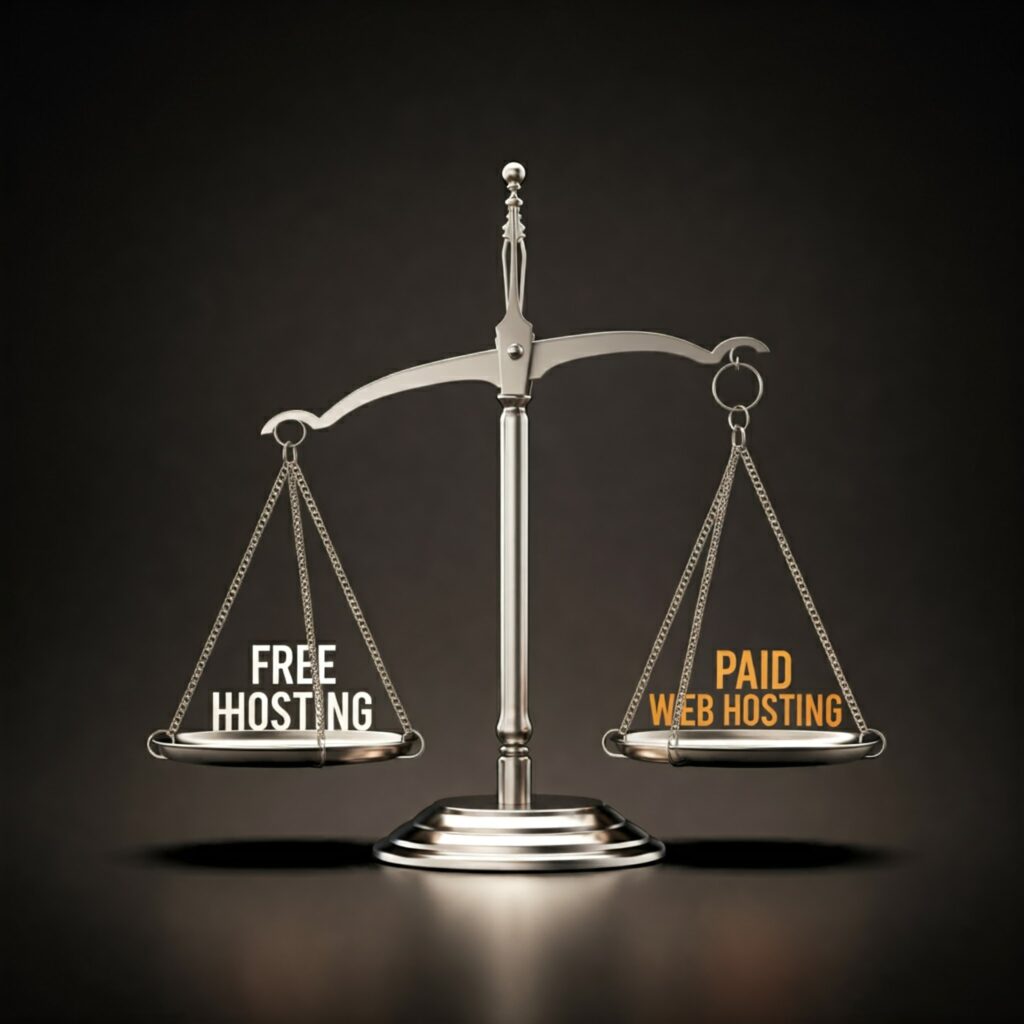Free Web hosting in 2024: Weighing the Pros and Cons of "Free"
In the vast landscape of web hosting, the allure of "free" can be tempting, particularly for individuals or businesses with limited budgets. Numerous providers offer free web hosting services, seemingly offering a cost-effective path to establish an online presence. But is free hosting truly a viable option? Let's delve into the pros and cons to help you make an informed decision.
The Appeal of Free Web Hosting
- Zero Upfront Cost: The most obvious advantage is the absence of any initial financial investment. This can be particularly attractive for hobbyists, students, or those exploring website creation without committing to a paid plan.
- Ease of Setup: Many free hosting providers streamline the setup process and offer user-friendly interfaces, making it accessible for beginners to embark on their web hosting journey without technical expertise.
- Learning Opportunity: Free hosting can serve as a valuable stepping stone for learning the ropes of website management and experimenting with various technologies without financial risk. It allows you to gain practical experience and build confidence before investing in a paid solution.
The Potential Pitfalls of Free Hosting
While free hosting might seem enticing, it comes with significant limitations that can impact your website's performance, user experience, and overall success:
- Limited Resources & Performance:
- Shared Resources: Free hosting plans often allocate limited resources like storage, bandwidth, and processing power. This can lead to sluggish loading times, especially during traffic spikes or when utilizing resource-intensive features.
- Downtime & Reliability: Free hosting providers might not offer the same level of uptime guarantees as paid options. Your website could experience more frequent downtime or performance issues, negatively impacting user experience and potentially harming your seo rankings.
- Advertising & Branding:
- Forced Ads: Many free hosting providers display advertisements on your website, often prominently and without your control. This can detract from the user experience, disrupt your design aesthetic, and erode your brand image.
- Subdomains: You might be restricted to using a subdomain (e.g., yourwebsite.freehostingprovider.com) instead of a custom domain name. This can impact brand recognition, professionalism, and memorability.
- Limited Features & Functionality:
- Basic Features: Free hosting plans often come with a bare-bones feature set. You might lack access to advanced tools, email hosting, e-commerce capabilities, or the flexibility to install custom scripts or applications.
- Limited Support: Customer support might be minimal or non-existent, leaving you to troubleshoot issues on your own, potentially leading to extended downtime and frustration.
- Security Concerns:
- Shared Environments: Free hosting environments can be more susceptible to security risks, as a breach on one website could potentially impact others on the same server.
- Limited Security Features: Free plans might not include robust security measures like malware scanning, web application firewalls, or DDoS protection, leaving your site vulnerable to attacks.
When Free Hosting Might Be Suitable

- Personal Projects or Hobby Sites: If you're building a personal website or blog with minimal traffic and resource requirements, free hosting can be a viable option to get started.
- Testing & Experimentation: Free hosting serves as a useful platform for testing new ideas or concepts before committing to a paid plan. You can explore different website builders, experiment with designs, and gain hands-on experience without financial risk.
When to Consider Paid Hosting
- Professional Websites & Businesses: If you're building a professional website or running a business, investing in paid hosting is crucial for ensuring reliability, performance, security, and brand control.
- E-commerce Stores: Online stores handling sensitive customer data and payment information require secure and high-performance hosting solutions. Paid e-commerce hosting plans often include features like SSL certificates, PCI compliance, and dedicated support.
- High-Traffic Websites: If you anticipate significant traffic or plan to run resource-intensive applications, paid hosting with scalable plans is essential to handle the load and maintain optimal performance.
Conclusion
Free web hosting offers an enticing entry point for budget-conscious individuals or those experimenting with website building. However, its limitations in resources, performance, features, branding, and security make it less suitable for professional websites or businesses that rely on their online presence.
Carefully weigh the pros and cons of free hosting against your website's needs and long-term goals. If you prioritize performance, security, brand control, and scalability, investing in a paid hosting plan is often a wiser choice for sustainable online success. Remember, your website is an investment in your brand and future. Choose a hosting solution that empowers your online presence and supports your aspirations.
